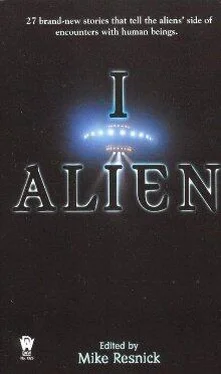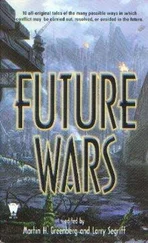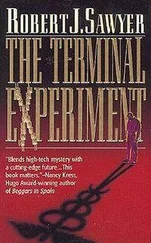Robert Sawyer - The Eagle Has Landed
Здесь есть возможность читать онлайн «Robert Sawyer - The Eagle Has Landed» весь текст электронной книги совершенно бесплатно (целиком полную версию без сокращений). В некоторых случаях можно слушать аудио, скачать через торрент в формате fb2 и присутствует краткое содержание. Город: New York, Год выпуска: 2005, ISBN: 2005, Издательство: DAW Books, Жанр: Фантастика и фэнтези, на английском языке. Описание произведения, (предисловие) а так же отзывы посетителей доступны на портале библиотеки ЛибКат.
- Название:The Eagle Has Landed
- Автор:
- Издательство:DAW Books
- Жанр:
- Год:2005
- Город:New York
- ISBN:978-0-7564-0235-8
- Рейтинг книги:3 / 5. Голосов: 1
-
Избранное:Добавить в избранное
- Отзывы:
-
Ваша оценка:
- 60
- 1
- 2
- 3
- 4
- 5
The Eagle Has Landed: краткое содержание, описание и аннотация
Предлагаем к чтению аннотацию, описание, краткое содержание или предисловие (зависит от того, что написал сам автор книги «The Eagle Has Landed»). Если вы не нашли необходимую информацию о книге — напишите в комментариях, мы постараемся отыскать её.
The Eagle Has Landed — читать онлайн бесплатно полную книгу (весь текст) целиком
Ниже представлен текст книги, разбитый по страницам. Система сохранения места последней прочитанной страницы, позволяет с удобством читать онлайн бесплатно книгу «The Eagle Has Landed», без необходимости каждый раз заново искать на чём Вы остановились. Поставьте закладку, и сможете в любой момент перейти на страницу, на которой закончили чтение.
Интервал:
Закладка:
The Eagle Has Landed
by Robert J. Sawyer
I’ve spent a lot of time watching Earth—more than forty of that planet’s years. My arrival was in response to the signal from our automated probe, which had detected that the paper-skinned bipedal beings of that world had split the atom. The probe had served well, but there were some things only a living being could do properly, and assessing whether a life-form should be contacted by the Planetary Commonwealth was one.
It would have been fascinating to have been present for that first fission explosion: it’s always a fabulous thing when a new species learns to cleave the atom, the dawn for them of a new and wondrous age. Of course, fission is messy, but one must glide before one can fly; all known species that developed fission soon moved on to the clean energy of controlled fusion, putting an end to need and want, to poverty, to scarcity.
I arrived in the vicinity of Earth some dozen Earth-years after that first fission explosion—but I could not set down upon Earth, for its gravity was five times that of our homeworld. But its moon had a congenial mass; there I would weigh slightly less than I did at home. And, just like our homeworld, which, of course, is itself the moon of a gas giant world orbiting a double star, Earth’s moon was tidally locked, constantly showing the same face to its primary. It was a perfect place for me to land my starbird and observe the goings-on on the blue-and-white-and-infrared world below.
This moon, the sole natural satellite, was devoid of atmosphere, bereft of water. I imagined our homeworld would be similar if its volatiles weren’t constantly replenished by material from Chirp- chirp -CHIRP-chirp, the gas giant planet that so dominated our skies; a naturally occurring, permanent magnetic-flux tube passed a gentle rain of gases onto our world.
The moon that the inhabitants of Earth called “ the moon” (and “ La Lune,” and a hundred other things) was depressingly desolate. Still, from it I could easily intercept the tens of thousands of audio and audiovisual transmissions spewing out from Earth—and with a time delay of only four wingbeats. My starbird’s computer separated the signals one from another, and I watched and listened.
It took that computer most of a smallyear to decipher all the different languages this species used, but, by the year—being a planet, not a moon, Earth had only one kind of year—the Earth people called 1958, I was able to follow everything that was happening there.
I was at once delighted and disgusted. Delighted, because I’d learned that in the years since that initial atomic test explosion had triggered our probe, the natives of this world had launched their first satellite. And disgusted, because almost immediately after developing fission, they had used those phenomenal energies as weapons against their own kind. Two cities had been destroyed, and bigger and more devastating bombs were still being developed.
Were they insane, I wondered? It had never occurred to me that a whole species could be unbalanced, but the initial fatal bombings, and the endless series of subsequent test explosions of bigger and bigger weapons, were the work not of crazed individuals but of the governments of this world’s most powerful nations.
I watched for two more Earth years, and was about to file my report—quarantine this world; avoid all contact—when my computer alerted me to an interesting signal coming from the planet. The leader of the most populous of the nations on the western shore of the world’s largest ocean was making a speech: “Now it is time,” he was saying, “to take longer strides”— apparently significant imagery for a walking species— “time for a great new American enterprise; time for this nation to take a clearly leading role in space achievement, which in many ways may hold the key to our future on Earth…”
Yes, I thought. Yes. I listened on, fascinated.
“I believe this nation should commit itself to achieving the goal, before this decade”—a cluster of ten Earth years—“is out, of landing a man on the moon and returning him safely to the Earth…”
Finally, some real progress for this species! I tapped the ERASE node with a talon, deleting my still-unsent report.
At home, these “Americans,” as their leader had called them, were struggling with the notion of equality for all citizens, regardless of the color of their skin. I know, I know—to beings such as us, with frayed scales ranging from gold to green to purple to ultraviolet, the idea of one’s coloration having any significance seems ridiculous, but for them it had been a major concern. I listened to hateful rhetoric: “Segregation now, segregation tomorrow, segregation forever!” And I listened to wonderful rhetoric: “I have a dream that one day this nation will rise up and live out the true meaning of its creed: ‘We hold these truths to be self-evident: that all men are created equal.’ ” And I watched as public sentiment shifted from supporting the former to supporting the latter, and I confess that my dorsal spines fluttered with emotion as I did so.
Meanwhile, Earth’s fledgling space program continued: single-person ships, double-person ships, the first dockings in space, a planned triple-person ship, and then…
And then there was a fire at the liftoff facility. Three “humans”—one of the countless names this species gave itself—were dead. A tragic mistake: pressurized space vehicles have a tendency to explode in vacuum, of course, so someone had landed on the idea of pressurizing the habitat (the “command module,” they called it) at only one-fifth of normal, by eliminating all the gases except oxygen, normally a fifth-part of Earth’s atmosphere…
Still, despite the horrible accident, the humans went on. How could they not?
And, soon, they came here, to the moon.
I was present at that first landing, but remained hidden. I watched as a figure in a white suit hopped off the last rung of a ladder and fell at what must have seemed to it a slow rate. The words the human spoke echo with me still: “That’s one small step for man, one giant leap for mankind.”
And, indeed, it truly was. I could not approach closely, not until they’d departed, but after they had, I walked over—even in my environmental sack, it was easy to walk here on my wingclaws. I examined the lower, foil-wrapped stage of their landing craft, which had been abandoned here. My computer could read the principal languages of this world, having learned to do so with aid of educational broadcasts it had intercepted. It informed me that the plaque on the lander said, “Here men from the planet Earth first set foot upon the moon, July 1969. We came in peace for all mankind.”
My spines rippled. There was hope for this race. Indeed, during the time since that speech about longer strides, public opinion had turned overwhelmingly against what seemed to be a long, pointless conflict being fought in a tropical nation. They didn’t need quarantining; all they needed, surely, was a little time…
Fickle, fickle species! Their world made only three and a half orbits around its solitary sun before what was announced to be the last journey here, to the moon, was completed. I was stunned. Never before had I known a race to turn its back on space travel once it had begun; one might as well try to crawl back into the shards of one’s egg…
But, incredibly, these humans did just that. Oh, there were some perfunctory missions to low orbit, but that was all.
Yes, there had been other accidents—one on the way to the moon, although there were no casualties; another, during which three people died when their vessel depressurized on reentry. But those three were from another nation, called “Russia,” and that nation continued its space efforts without missing a wingbeat. But soon Russia’s economy collapsed—of course! This race still hadn’t developed controlled fusion; indeed, there was a terrible, terrible accident at a fission power-generating station in that nation shortly before it fell apart.
Читать дальшеИнтервал:
Закладка:
Похожие книги на «The Eagle Has Landed»
Представляем Вашему вниманию похожие книги на «The Eagle Has Landed» списком для выбора. Мы отобрали схожую по названию и смыслу литературу в надежде предоставить читателям больше вариантов отыскать новые, интересные, ещё непрочитанные произведения.
Обсуждение, отзывы о книге «The Eagle Has Landed» и просто собственные мнения читателей. Оставьте ваши комментарии, напишите, что Вы думаете о произведении, его смысле или главных героях. Укажите что конкретно понравилось, а что нет, и почему Вы так считаете.








